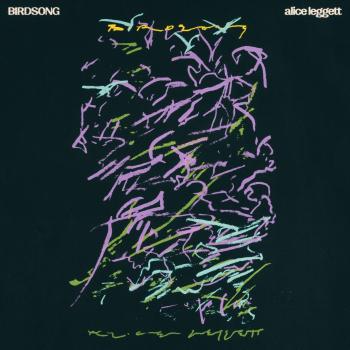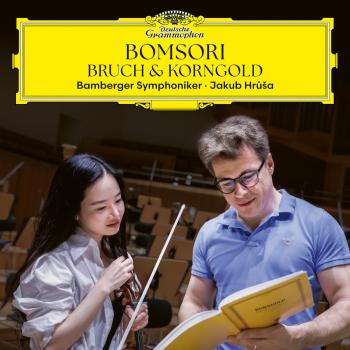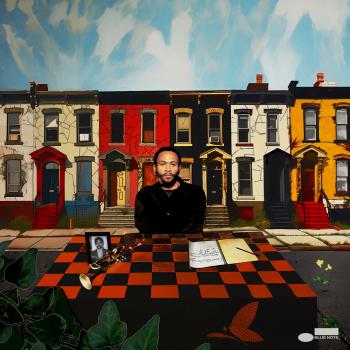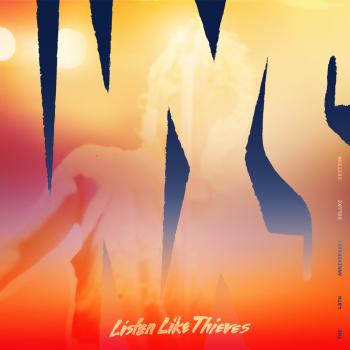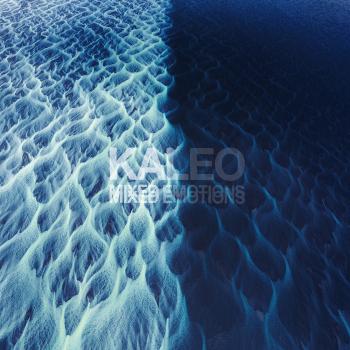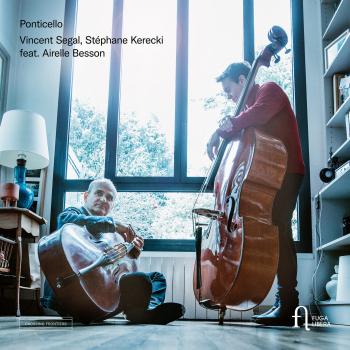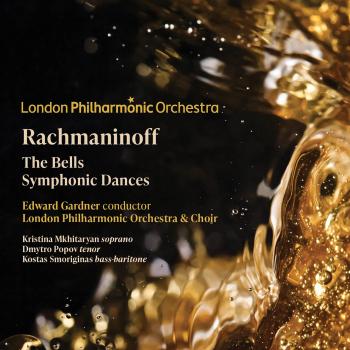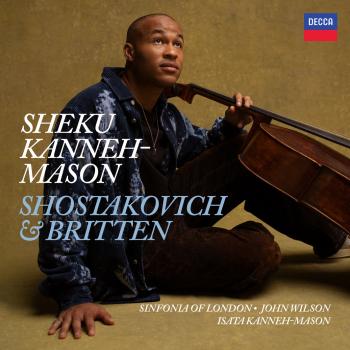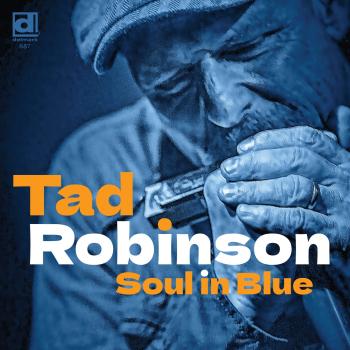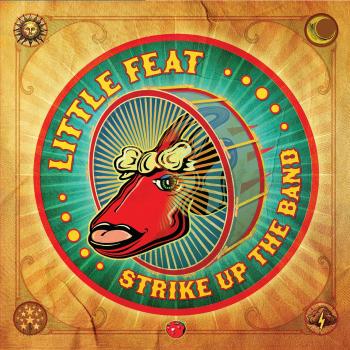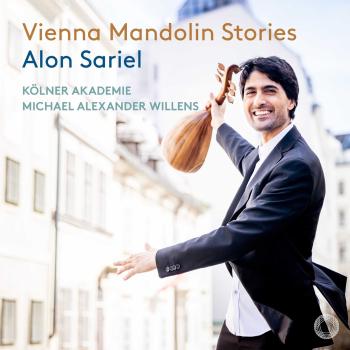
Audite Edition Wilhelm Furtwängler (The Complete RIAS Recordings from Berlin, 1947-1954) Berliner Philharmoniker & Wilhelm Furtwängler
Album info
Album-Release:
2009
HRA-Release:
26.07.2016
Label: audite Musikproduktion
Genre: Classical
Subgenre: Concertos
Artist: Berliner Philharmoniker & Wilhelm Furtwängler
Composer: Ludwig van Beethoven (1770–1827), Felix Mendelssohn (1809-1847), Johann Sebastian Bach (1685-1750), Franz Schubert (1797-1828), Johannes Brahms, Anton Bruckner (1824-1896), Robert Schumann (1810-56), Wolfgang Fortner, Richard Wagner, Paul Hindemith, Christoph Willibald von Gluck, Carl Maria von Weber, Boris Blacher, Richard M. Sherman
Album including Album cover
- 1 I. Erwachen heiterer Empfindungen bei der Ankunft auf dem Lande. Allegro ma non Troppo 11:04
- 2 II. Szene am Bach. Andante molto Mosso 12:58
- 3 III. Lustiges Zusammensein der Landleute. Allegro 05:32
- 4 IV. Gewitter, Sturm. Allegro 04:04
- 5 V. Hirtengesang, frohe und dankbare Gefühle nach dem Sturm. Allegretto 08:41
- 6 I. Allegro con brio 08:13
- 7 II. Andante con moto 10:35
- 8 III. Allegro 05:47
- 9 IV. Allegro 07:59
- 10 Allegro di Molto 12:58
- 11 I. Allegro ma non Troppo 23:44
- 12 II. Larghetto 10:26
- 13 III. Rondo 09:56
- 14 I. Ouverture 08:11
- 15 II. Air 06:39
- 16 III. Gavotte 02:51
- 17 IV. Bourrée 00:54
- 18 V. Gigue 02:34
- 19 I. Allegro moderato 11:36
- 20 II. Andante con moto 12:02
- 21 I. Allegro non Troppo 12:45
- 22 II. Andante Moderato 12:22
- 23 III. Allegro giocoso - Poco meno Presto 06:27
- 24 IV. Allegro energico e passionato - Più Allegro 09:46
- 25 II. Scherzo. Allegro moderato. Trio. Langsam 15:30
- 26 I. Allegro Moderato 13:41
- 27 III. Adagio. Feierlich langsam, doch nicht Schleppend. 24:54
- 28 IV. Finale. Feierlich, nicht Schnell 21:53
- 29 Rasch 13:21
- 30 I. Allegro con brio 13:16
- 31 II. Andante 09:42
- 32 III. Poco Allegretto 06:23
- 33 IV. Allegro 09:22
- 34 I. Allegro con Brio 06:16
- 35 II. Canzone. Andantino 09:44
- 36 III. Introduction e Rondo. Molto Allegro - Allegro poco scherzando - Presto 06:20
- 37 Sehr langsam - Feierlich 09:35
- 38 Sehr mäßig Bewegt 09:23
- 39 I. Ouverture 02:11
- 40 II. Allegro 02:53
- 41 III. Air. Lentement 04:44
- 42 V. Allegro 04:00
- 43 VI. Allegro Moderato 02:51
- 44 Thema. Chorale St. Antoni. Andante 02:08
- 45 Variation I. Poco più Animato 01:19
- 46 Variation II. Più Vivace 01:04
- 47 Variation III. Con Moto 02:06
- 48 Variation IV. Andante con Moto 02:58
- 49 Variation V. Vivace 00:57
- 50 Variation VI. Vivace 01:25
- 51 Variation VII. Grazioso 03:30
- 52 Variation VIII. Presto non Troppo 01:06
- 53 Finale. Andante 03:46
- Paul Hindemith (1895-1963): Concerto for Orchestra, Op. 38:
- 54 I. Mit Kraft, mäßig schnelle Viertel 03:18
- 55 II. Sehr schnelle Halbe 03:28
- 56 III. Marsch für Holzbläser. Nicht zu langsame Viertel 03:41
- 57 IV. Basso ostinato. Schnelle Viertel 02:15
- Ludwig van Beethoven: Symphony No. 3 in E-Flat Major, Op. 55 Eroica:
- 58 I. Allegro con brio 15:58
- 59 II. Marcia funebre. Adagio assai 17:32
- 60 III. Scherzo. Allegro vivace 06:15
- 61 IV. Finale. Allegro molto 12:09
- 62 Applause 00:30
- 63 Intrada. Un poco moderato - Andante 09:34
- 64 I. Larghetto e Staccato 01:42
- 65 II. Allegro 03:02
- 66 III. Presto 02:15
- 67 IV. Largo 03:47
- 68 VI. Menuet. Un poco Larghetto 03:46
- 69 V. Allegro 03:19
- 70 Applause 00:38
- 71 Adagio - Molto Vivace 13:01
- 72 Applause 00:17
- 73 I. Musica Instrumentalis. Breit - Marsch. Gewichtig 12:40
- 74 II. Musica Humana. Sehr Getragen 09:22
- 75 III. Musica mundana. Sehr breit - Passacaglia. Ruhig Bewegt 14:12
- 76 I. Allegro con brio 16:37
- 77 II. Marcia funebre. Adagio assai 18:54
- 78 III. Scherzo. Allegro vivace 06:36
- 79 IV. Finale. Allegro molto 12:56
- 80 Applause 00:27
- 81 Andante - Allegro Vivace 11:44
- 82 Applause 00:15
- 83 Moderato - Molto Allegro 09:38
- 84 I. Allegro moderato 11:40
- 85 II. Andante con moto 11:36
- 86 I. Andante - Allegro ma non Troppo 14:16
- 87 II. Andante con Moto 17:03
- 88 III. Scherzo. Allegro vivace - Trio 09:56
- 89 IV. Finale. Allegro Vivace 11:13
- 90 I. Allegro con brio 10:48
- 91 II. Andante 09:55
- 92 III. Poco Allegretto 06:39
- 93 IV. Allegro 09:40
- 94 Allegro molto con Brio 18:14
- 95 Prelude 11:00
- 96 Isoldes Liebestod 06:42
- 97 I. Erwachen heiterer Empfindungen bei der Ankunft auf dem Lande. Allegro ma non Troppo 11:45
- 98 II. Szene am Bach. Andante molto Mosso 13:44
- 99 III. Lustiges Zusammensein der Landleute. Allegro 05:59
- 100 IV. Gewitter, Sturm. Allegro 04:09
- 101 V. Hirtengesang, frohe und dankbare Gefühle nach dem Sturm. Allegretto 08:59
- 102 I. Allegro con brio 08:23
- 103 II. Andante con Moto 11:08
- 104 III. Allegro 06:11
- 105 IV. Allegro 08:51
- 106 Criteria for casting Singers 05:44
- 107 Relationship between conductor and Director 10:05
- 108 Length of breaks / Overture to 'Die Zauberflöte' 08:09
- 109 Musical Tempo 01:27
- 110 Audience / Musical Intelligence 03:13
- 111 General pauses in Bruckner's works / Principle of the symphony / Future of music / Schott Composers 05:39
- 112 Emotional music / Freedom in Music 06:08
- 113 Universality of interpretations / Sound volume and size of concert Hall 05:50
- 114 Acoustics of opera houses and concert Halls 01:34
- 115 Casting of Wagnerian roles / Impact of gender / Perfefefction and Charisma 09:50
- 116 Orchestra pit - Covered or open / The orchestra as an accompanying Instrument 04:05
- 117 The art of Accompaniment 02:09
- 118 Historic Recordings and Remastering 22:30
Info for Audite Edition Wilhelm Furtwängler (The Complete RIAS Recordings from Berlin, 1947-1954)
The majority of the concerts given by Wilhelm Furtwängler and the Berlin Philharmonic between 1947 and 1954 were recorded by the RIAS Berlin all of these recordings are documented in this boxed set. The original tapes from the RIAS archives have been made available for the first time for this edition so these CDs also offer unsurpassed technical quality. Furthermore, some of the recordings are presented for the very first time, such as the Fortner Violin Concerto with Gerhard Taschner. These RIAS recordings are documents of historical value: they contain a major part of Furtwängler's late oeuvre as a conductor, which was characterised by a high level of focus in different respects. Focus on repertoire which has at its core the symphonic works of Beethoven, Brahms and Bruckner and is supplemented by works by Bach and Handel and also by topical composers of the time, including Hindemith, Blacher and Fortner: artists who were counted amongst the members of 'moderate modernism' and who were not perceived to have been tainted by the cultural politics of the National Socialists. Focus was also a guiding principle in Furtwängler's concert programmes which always feature a particular idea. His interpretations also demonstrate extremely high levels of focus: concentration and focus for him meant a contemporary decoding, a re-creation, which would express the fundamental content of a work. A number of works - the Third, Fifth and Sixth Symphonies by Ludwig van Beethoven as well as Johannes Brahms' Third Symphony - are included in two interpretations. They reveal how Furtwängler was able to accentuate different aspects of a work whilst maintaining the same, clear basic conception - and how the actual interpretation depended on the context of the particular programme. The production is part of our series 'Legendary Recordings'and bears the quality feature '1st Master Release'. This term stands for the excellent quality of archival productions at audite. For all historical publications at audite are based, without exception, on the original tapes from broadcasting archives. In general these are the original analogue tapes, which attain an astonishingly high quality, even measured by today's standards, with their tape speed of up to 76 cm / sec. The remastering - professionally competent and sensitively applied - also uncovers previously hidden details of the interpretations. Thus, a sound of superior quality results. CD publications based on private recordings from broadcasts or old shellac records cannot be compared with these.
Yehudi Menuhin, violin
Gerhard Taschner, iolin
Berliner Philharmoniker
Wilhelm Furtwängler, conductor
Sir Simon Rattle
born in Liverpool in 1955, assumed the post of chief conductor of the Berliner Philharmoniker and artistic director of the Berliner Philharmonie in September 2002.
After studying at the Royal Academy of Music in London he took on various engagements in England and the USA, where he was principal guest conductor of the Los Angeles Philharmonic Orchestra. In 1980 Simon Rattle was appointed principal conductor and artistic adviser of the City of Birmingham Symphony Orchestra (CBSO). He became the orchestra’s music director in 1990 and remained with the ensemble until 1998.
In addition to the CBSO, Simon Rattle continued to conduct leading orchestras in the USA and Europe, enjoying long-term collaborations with such ensembles as the Boston Symphony Orchestra, the Philadelphia Orchestra and the Vienna Philharmonic. In May 2002 he recorded the complete Beethoven symphonies with the Vienna Philharmonic and joined forces with Alfred Brendel to record a boxed set of the Beethoven piano concertos. Since October 1992 Simon Rattle has been principal guest conductor of the Orchestra of the Age of Enlightenment and artistic adviser to the Birmingham Contemporary Music Group.
Since his operatic debut at the 1977 Glyndebourne Festival, Simon Rattle has continued to conduct opera regularly. He has appeared at opera houses in Paris, Amsterdam and London, and in January 2005 he was invited to the Wiener Staatsoper for the first time, where he conducted Richard Wagner’s Parsifal. In April 2008 he made his debut at the Staatsoper Berlin, conducting Claude Debussy’s Pelléas et Mélisande in a revival of the Ruth Berghaus production. In December 2010 he made his Metropolitan Opera New York debut with Pelléas et Mélisande.
Simon Rattle has led the Berliner Philharmoniker in staged productions of Ludwig van Beethoven’s Fidelio, Wolfgang Amadeus Mozart’s Così fan tutte, Benjamin Britten’s Peter Grimes and Claude Debussy’s Pelléas et Mélisande, Salome by Richard Strauss and George Bizet’s Carmen as well as a concert performance of Mozart’s Idomeneo at the Salzburg Easter Festival. Richard Wagner’s Der Ring des Nibelungen was presented at Salzburg in a co-production with the Aix-en-Provence Festival, beginning with Das Rheingold in 2007, followed by Die Walküre in 2008 and Siegfried in 2009, with Götterdämmerung completing the cycle in 2010.
Before being appointed chief conductor of the orchestra, Simon Rattle had already collaborated with the Berliner Philharmoniker over a period of 15 years. His conducting debut with the ensemble took place on 14 November 1987 with a performance of Gustav Mahler’s Symphony No. 6. He continued to lead the orchestra on a regular basis, conducting repertoire ranging from Jean-Philippe Rameau to world premieres.
Simon Rattle has an exclusive recording contract with EMI; together they have produced more than 70 recordings with the CBSO and other orchestras. He inspired the British television series Leaving Home (Channel 4), which brings 20th-century orchestral music to the general public. The series is also available in Germany on DVD and won an award in 1997. Rattle’s recording partnership with the Berliner Philharmoniker began with recordings of Franz Liszt’s Faust Symphony and Gustav Mahler’s Symphony No. 10 in Deryck Cooke’s performing version. These were followed by Arnold Schoenberg’s Gurre-Lieder and Mahler’s Fifth Symphony in 2002, Ludwig van Beethoven’s Fidelio in 2003 and Olivier Messiaen’s Éclairs sur l’au-delà in 2004. In the same year, the Berliner Philharmoniker produced its first independent recording, Igor Stravinsky’s Le Sacre du printemps, which formed the soundtrack for the film Rhythm Is It! 2005 brought releases of Carl Orff’s Carmina Burana, a collection of orchestral songs by Benjamin Britten with Ian Bostridge and Antonín Dvořák’s symphonic poems. Franz Schubert’s Symphony No. 8 in C major, Richard Strauss’s Ein Heldenleben and Der Bürger als Edelmann, Gustav Holst’s The Planets, with Colin Matthews’s Pluto and compositions on asteroids by Kaija Saariaho, Brett Dean, Matthias Pintscher and Mark-Anthony Turnage, were released in 2006, as well as a collaboration with Krystian Zimerman as soloist in Johannes Brahms’s Piano Concerto No. 1 (on Deutsche Grammophon).
The 2007 recording of Brahms’s Ein deutsches Requiem with the Rundfunkchor Berlin and soloists Thomas Quasthoff and Dorothea Röschmann received a Grammy Award in February 2008. A Haydn concert of Symphonies No. 87 – 92, recorded live in the Berlin Philharmonie in February 2007, was released the following August. The live recording of the 2007 New Year’s Eve concert, with Pictures at an Exhibition by Mussorgsky/Ravel and Borodin’s Second Symphony and Polovtsian Dances, appeared on the market one week later. In March 2008 the live CD of Gustav Mahler’s Symphony No. 9, recorded in the Philharmonie in October of the previous year, was released. The recording of Stravinsky’s Symphony of Psalms and Symphony in C, released in June 2008, won a Grammy as “Best Choral Performance” in February 2009. Sir Simon Rattle’s recent releases include Anton Bruckner’s Symphony No. 4 in E-flat major and Maurice Ravel’s one-act opera L’Enfant et les sortilèges and Ma Mère l’Oye, recorded live in concert at the Philharmonie in September 2008. The recording of Johannes Brahms’s four symphonies was released in Germany in August 2009, and Peter Tchaikovsky’s Nutcracker was released in September 2010. Mahler’s Symphony No. 2 was published in Spring 2011. The recording of Johann Sebastian Bach’s St Matthew Passion in a ritualisation by Peter Sellars, which was performed in April 2010 in the Philharmonie, was released on DVD and Blu-ray in Spring 2012. Furthermore a CD (EMI) with the live recording of a Philharmoniker concert in February 2012 featuring Anton Bruckner’s Symphony No. 9 in the performing edition of the fourth movement completed from the manuscripts by Samale-Phillips-Cohrs-Mazzuca is available since May 2012.
In 1994 Simon Rattle was knighted by the Queen of England and has since received numerous distinctions. In 1996 the Toepfer Foundation in Hamburg awarded him the Shakespeare Prize; in 1997 he received the Albert Medal from the Royal Society of Arts in recognition of his extraordinary service to music, his activities in music education and his contributions to the musical community, all of which are important aspects of his work in Berlin. Since assuming his post as artistic director of the Philharmonic in September 2002, he has taken the orchestra in new directions with the Education Programme of the Berliner Philharmoniker. He has been honoured many times for his commitment to music education. In May 2005 he was awarded the Schiller Special Prize by the city of Mannheim, and in Spring 2007 he received the Golden Camera and the Urania Medal. In November 2007 Sir Simon Rattle was awarded the German Children’s Prize, and the same month he and the Berliner Philharmoniker were appointed as international UNICEF Goodwill Ambassadors in New York, the first time this honour has been conferred on an artistic ensemble. In spring 2009 Sir Simon Rattle received the Spanish Premio Don Juan de Borbón de la Música in Segovia. He was awarded the Order of Merit of the Federal Republic of Germany by President Horst Köhler in October 2009, twenty years after the fall of the Berlin Wall. In June 2010 Sir Simon Rattle was awarded a knighthood in the French Legion of Honour on behalf of the French President by Bernard de Montferrant, the French ambassador to Germany.
This album contains no booklet.

